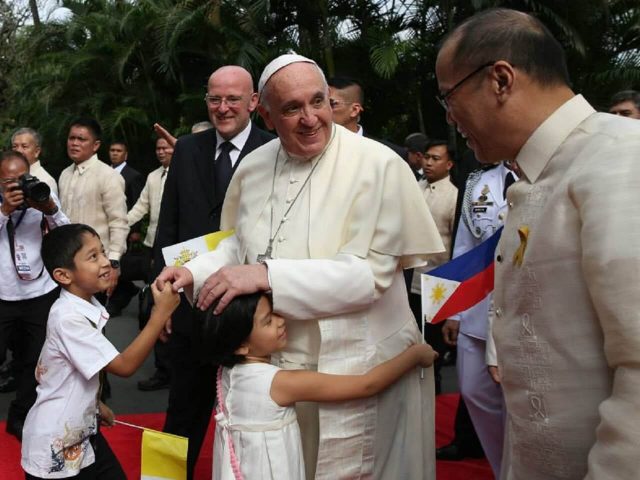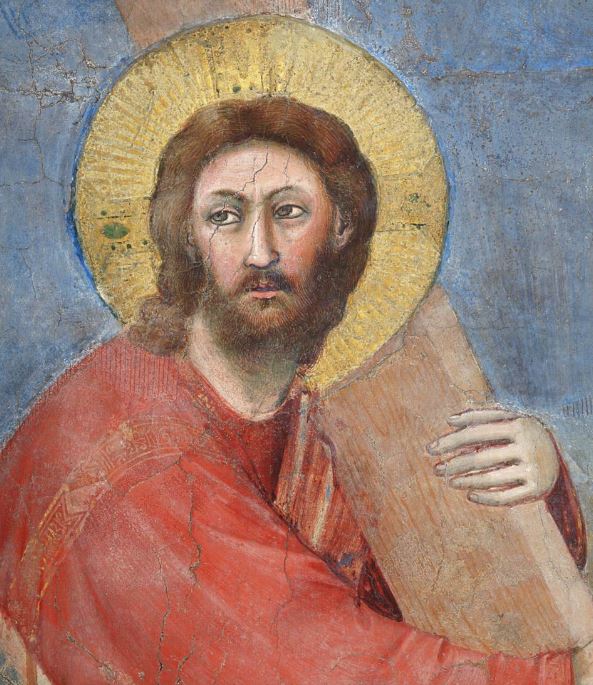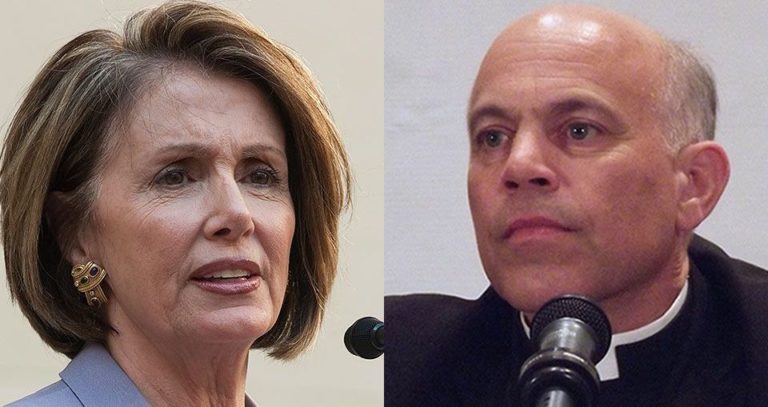It is with a spirit of faith, hope, and love that I write this letter to you, the vicar of Christ on earth, the successor to St. Peter, the point of unity for all Catholic Christians. Truly, the Petrine office is one to which I faithfully submit in humble obedience. I pray for you and for the Church daily.
Countless times during your pontificate, you have emphasized the need for the youth to speak openly, boldly, and with courage. In fact, I recall you telling us youth at World Youth Day Rio 2013 to “make a mess.” You encouraged the bishops assembled for the 2014 Synod on the Family to “speak with parrhesia,” the Greek word meaning liberty, openness, fearlessness. In your words: “Speak clearly. Let no one say: ‘This you cannot say.’”
It is in this spirit that I bring you three points regarding the upcoming Synod 2018 on Young People, the Faith, and Vocational Discernment.
Young People
As a 25-year-old male, I belong to the “giovani,” the young people to whom the Synod is directed. Truly, this is a turbulent time for the youth. We have inherited and experienced massive changes within our common life. Seismic shifts in socio-political institutions, the burden of economic insecurity, and the rapidly growing irreligious population among our peers have placed us in a situation unlike any prior generation’s. That stated, many of the young people I know around the world, though differing in language and culture, have a shared desire for truth, goodness, and beauty. All of us, from those who attend daily Mass and pray the rosary to the person questioning the existence of God, are searching for meaning and for ultimate happiness. We pray and live the words of St. Augustine of Hippo: “Thou hast formed us for Thyself, and our hearts are restless till they find rest in Thee” (Augustine, Confessions, Book 1).
I speak not only for myself when I say the restless heart finds its rest in the Sacred Heart of Jesus. We encounter God’s love most powerfully in the Holy Eucharist. Regardless of one’s formal theological education, many young people find this sort of rest in the Sacred Liturgy. Something should be said, then, about the way we often experience liturgy.
Young people today are not the young people of the 1960s. The Second Vatican Council tried its best to speak to “modern man,” but modern man of the 1960s and 1970s is now himself in his 70s. If the 1960s youth were marked by a sense of rebellion and anarchy, the youth of today desire stability, orthodoxy, and order. Unfortunately, such desire is often seen with suspicious and distrusting eyes. We are often called “rigid,” “close-minded,” and “unstable.” This is a most unfortunate pejorative claim marked against us.
Young people desire clarity, truth, and a steadfastness to the Apostolic Faith. Given the reality of the internet, young people today are exposed to the traditional teachings of the Church now more than ever. No longer does a person need to visit a library or Catholic bookstore to read papal encyclicals, canons of previous Church councils, and the writings of the Church Fathers; much of the Tradition is available online, free of charge.
Tradition is for the young. Many of us find ourselves attending the traditional Latin Mass for its sublime beauty, rich symbolism, and unquestionable sense of sacred worship. Unfortunately, when many of us express our love for tradition, we are insulted and unfairly labeled “ultra-conservatives.” We attend the Latin Mass not because we seek to escape from the world, but rather because we wish to sanctify it by being nourished through intentional, purposeful, and transcendent worship. Many of us rejoiced when your predecessor, Pope Benedict XVI, issued Summorum Pontificum and aided it with the following words:
What earlier generations held as sacred, remains sacred and great for us too, and it cannot be all of a sudden entirely forbidden or even considered harmful. It behooves all of us to preserve the riches which have developed in the Church’s faith and prayer, and to give them their proper place.
The young people who desire tradition are not “rigid.” In fact, the real rigidity is in our experiences with many liturgies in the Novus Ordo. Mini-homilies at the beginning of Mass, anthropocentricism and iconoclasm, priests making up their own words during the prayers, irreverent and banal music – all of this (and more) has led many a youth to explore the rich heritage of our Church’s liturgical tradition. We are Millennials with a breviary app on our iPhones. On social media, we share quotes from 18th-century saints. Though we are in the world, we resist being of it. Or, as St. Thérèse of Lisieux put it, “the world is thy ship and not thy home.”
Our desire for traditional, beautiful, and reverent liturgy should not be seen as disregarding issues of social justice. If anything, traditional liturgy fosters a more integral and authentic Christian social ethic. If we cannot worship and revere the Body of Christ in the Holy Eucharist, then we will never be able to truly revere and honor the Body of Christ in the world. Countless saints who have had a passion for serving the poor and marginalized have simultaneously adored the Lord in a spirit of awe and reverence. Consider St. Francis of Assisi and Mother Teresa, both of whom expressed the need for Eucharistic reverence while stretching out their arms to the poor and needy. Traditional liturgy and the Church’s social teaching are not mutually exclusive.
Faith
A key responsibility of the Petrine Office is to uphold the teachings of the Church. As the First Vatican Council declared:
[T]he Holy Spirit was promised to the successors of Peter not so that they might, by his revelation, make known some new doctrine, but that, by his assistance, they might religiously guard and faithfully expound the revelation or deposit of faith transmitted by the apostles. (First Vatican Council, Pastor aeternus, cap. 4.6)







